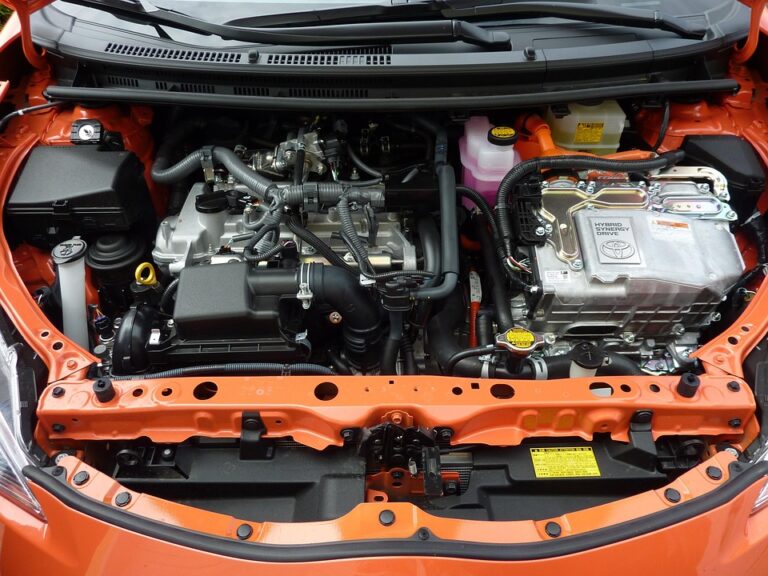Data Driven: How Big Data is Revolutionizing the Automotive Sector
In the rapidly evolving world of car technology, big data has emerged as a pivotal force, reshaping how automotive companies design, manufacture, and market their vehicles. With the advent of the Internet of Things (IoT) and smart technologies, data is being harnessed to foster innovation and enhance customer experiences in unprecedented ways. This article delves into how big data is revolutionizing the automotive sector, highlighting its benefits, applications, and implications for the future of mobility.
The Role of Big Data in Automotive Innovation
Streamlining Manufacturing Processes
Big data plays an essential role in optimizing manufacturing processes within the automotive industry. By analyzing vast amounts of data collected from various sources—such as sensors on assembly lines and supply chain logistics—automakers can identify inefficiencies, reduce waste, and enhance productivity. Predictive analytics can forecast equipment failures before they occur, significantly reducing downtime and costs associated with repairs.
For instance, manufacturers like Toyota have implemented big data solutions to fine-tune their just-in-time manufacturing processes, allowing them to react swiftly to changes in consumer demand and minimizing the risk of overproduction or stockouts.
Enhancing Vehicle Design and Development
Data collected from consumer behavior, market trends, and even social media feedback is instrumental in driving vehicle design and development. Companies utilize data analytics to gain insights into customer preferences, helping them develop features that resonate with their target market.
Moreover, vehicle simulations powered by big data allow manufacturers to test their designs in virtual environments, resulting in vehicles that are not only safer but also more enjoyable to drive. For example, Ford uses data to analyze the performance of materials and design elements, ensuring that every new vehicle meets the high standards expected by consumers.
Improving User Experience with Data-Driven Insights
Personalization of Features
One of the most exciting aspects of big data in the automotive sector is the ability to offer tailored experiences to drivers. With connected vehicles generating copious amounts of data, manufacturers can analyze individual driving patterns and preferences to customize features such as infotainment systems, navigation, and even seat positions.
Tesla is a prime example of utilizing big data for personalization. Its vehicles collect real-time data from drivers, allowing the company to push over-the-air updates that introduce new features and enhance functionality. This results in a unique driving experience that evolves with the user’s preferences.
Boosting Safety Measures
Safety is paramount in the automotive industry, and big data is driving significant advancements in this area. Through the analysis of accident data and driver behavior, manufacturers can enhance safety features in their vehicles. For example, advanced driver-assistance systems (ADAS) utilize real-time data to monitor surroundings and mitigate risks, providing warnings or even taking control of the vehicle if necessary.
Moreover, automakers are leveraging data to improve training for drivers, particularly for fleet vehicles. Companies can use data analytics to track driver performance, providing insights that help enhance safe driving practices and reduce accidents.
Big Data in Marketing and Sales Strategies
Targeted Marketing Campaigns
As consumer preferences shift, automotive brands must adapt their marketing strategies accordingly. Big data enables companies to perform deep dives into consumer demographics, purchasing behaviors, and market trends. This intelligence supports the creation of targeted marketing campaigns that resonate with specific audiences.
For instance, brands can analyze data from their website traffic, social media interactions, and customer feedback to refine their messaging and product placements. By reaching the right audience with tailored content, companies can increase engagement and conversion rates.
Forecasting Sales Trends
Accurate sales forecasting is crucial in the automotive sector. Utilizing big data allows manufacturers and dealers to predict market trends more reliably, leading to better inventory management and resource allocation. By applying advanced analytics to historical sales data and external factors like economic indicators, companies can anticipate shifts in demand and adjust their strategies accordingly.
The Future of Automotive with Big Data
The future of the automotive industry is undeniably intertwined with big data. As more vehicles become connected and autonomous, the volume of data generated will continue to grow exponentially. This transition presents both challenges and opportunities.
Automakers must prioritize data security and privacy, ensuring that user information is safeguarded against breaches. Furthermore, the integration of artificial intelligence (AI) with big data analytics will lead to even more sophisticated applications, from enhanced predictive maintenance to fully autonomous driving systems.
Conclusion: Embracing the Data-Driven Revolution
In conclusion, big data is not just a trend; it is a transformative force reshaping the automotive sector. From optimizing manufacturing processes and enhancing safety measures to personalizing driver experiences and refining marketing strategies, the applications of big data are vast and varied. As technology continues to advance, automotive companies must embrace this data-driven revolution to stay competitive and meet the ever-evolving demands of consumers.
Call to Action
Stay informed about the latest developments in car technology and how data is shaping the future of mobility. Subscribe to our newsletter for more insights and innovations in the automotive sector!
By harnessing the power of big data, the automotive industry is set to redefine how we perceive transportation, paving the way for smarter, safer, and more efficient vehicles for everyone.


